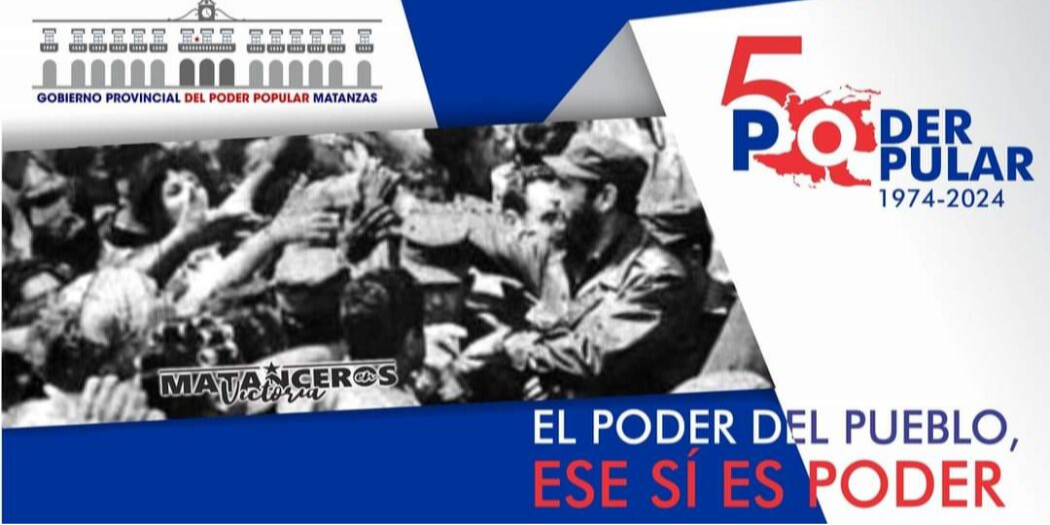
Illustrative image taken from tvyumuri.cu
By Yunielis Moliner *
The experience of developing the bodies of Popular Power in Cuba began in the western province of Matanzas in 1974. This year marks half a century of this democratic process and a plan of activities will be carried out in the province until the month of July.
According to Lisandra Rangel Balseiro, Government communicator in Matanzas, the communication plan will focus on strengthening the public's knowledge of the history of Popular Power, increasing information about the functioning of these bodies.
Cultural and sports initiatives will also be developed in the popular councils, as well as exchanges with delegates, visits to museums and historical places, photographic exhibitions and the cancellation of a postage stamp.
The work will focus on the neighborhoods in transformation and their founders and representatives will be recognized as living history of that process that marked the exercise of democracy in Cuba.
On June 30, 1974, after months of preparation, the population of Matanzas elected their local representatives by secret and direct vote, for the first time.
Subsequently, on July 21 of that year, the Provincial Assembly of delegates from the 14 municipalities of this territory was formed and on December 11 of that year, the neighborhood assemblies began in Matanzas to hear the Accountability of their delegates. .
This experience spread throughout the country and culminated in the creation of the People's Power bodies in the 169 municipalities, the 14 provinces and the national level.
On October 10 and 17, 1976, in the first and second electoral rounds, 95.2 percent of Cubans over 16 years of age - including military personnel - through a secret and direct vote chose from more than 30,000 nominees. people and elected 10,725 delegates (councilmen) who formed the 169 municipal assemblies (town halls) of Popular Power.
The Popular Power system arises in the process of construction and institutionalization of the Cuban socialist State as an essential element to articulate and make effective the democratic principle of the exercise of power by the people.
In its conception, Marxist-Leninist foundations and the experience of Cuban socialist practice during the provisional period were taken into account.
It is based on the unity of power and the leading role of the Party.
It is a novel system, whose development and improvement is carried out based on its application, in correspondence with the realities of the country.
* Radio Havana Cuba correspondent in Matanzas

